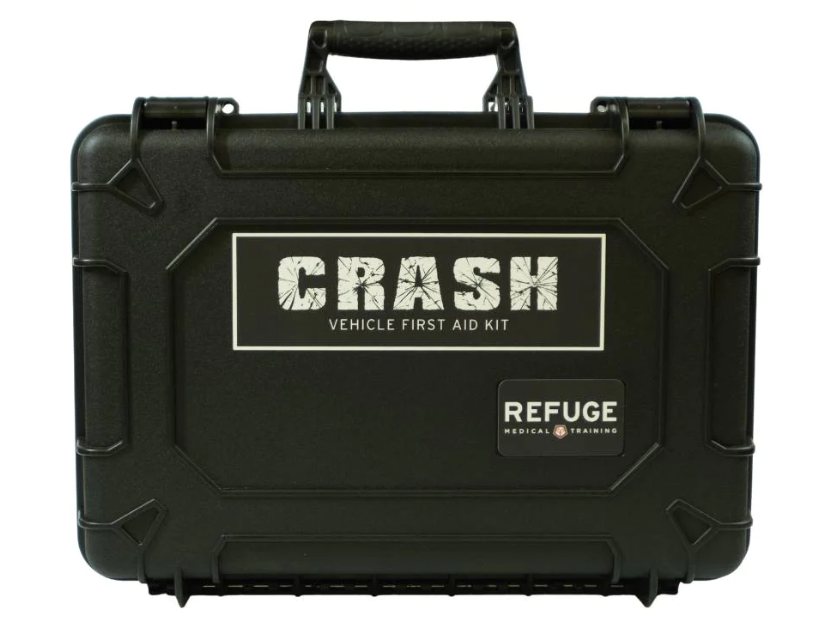- We Buy Vehicles
- Start Here

BlogSpot by #CurticeAtLipscombChevroletGMC #LipscombDealerships #GoodPeopleGreatDeals
Driving in inclement weather can be dangerous, but there are times when it’s necessary.
Especially for families, a vehicle can provide a means of escape from natural disasters. The
good news is that you can prepare for such events—even on a budget—with a little advance
planning.
Put Together an In-Vehicle Emergency Kit
Every driver should have an emergency kit on board. Add car-related items to your kit, such as
jumper cables, tire traction covers, and emergency roadside flares or markers. Outfitting your
vehicle can prove costly—but shopping online and picking up discounts and cash-back offers for
your auto parts can help you save.
If you get stuck, a pair of gaiters can prove handy, too. Choose a pair that’s durable, insulated,
and waterproof to protect your feet, ankles, and calves best while maneuvering in poor weather.
Your emergency kit also needs to include an extra phone battery or charger. A reliable form of
communication is a must in an emergency, after all.
Don’t Forget About First Aid
A first-aid kit is another necessity, and thankfully one that’s easy to put together. You can buy
a premade kit, but you can also create your own with a few essentials. According to the Red
Cross, your first aid kit should include any personal medications and emergency contact
numbers, plus:
- Compress dressings
- Adhesive bandages
- Cloth tape
- Antibiotic ointment
- Antiseptic wipes
- Aspirin
- An emergency blanket
- A breathing barrier (for CPR)
- An instant cold compress
- Non-latex gloves
- Hydrocortisone ointment
- A gauze roll bandage
- Sterile gauze pads
- An oral thermometer
- Triangular bandages
- Tweezers
All these items are essential and can be found in retail stores or my favorite are pre-made kits at refugemedical.com
Check Your Insurance Coverage Ahead of Time
If you live in an area where natural disasters are common (or anticipated), checking out your car
insurance is a smart idea. You’ll want full coverage—comprehensive insurance—to cover
damage from floods, fires, hurricanes, and more.
Plan Emergency Rations and Hydration
Water is vital for everyone in the car, and the Centers for Disease Control and Prevention
(CDC) recommends a gallon per day for each person. You will need to rotate your supply,
however, because water in plastic containers does “expire.”
Snacks are easy to stow in your vehicle, but even packaged, shelf-stable items have expiration
dates. Parents will want to stock up on kid-friendly foods like granola bars, peanut butter, cereal,
and dried fruit. But some canned items—like vegetables and meat—are also a good idea (plus a
can opener) in case you’re stranded longer than expected.
Ready.gov recommends you have a three-day supply of food at home. It’s helpful if you can
easily transport your supplies in your car, too—or keep them there just in case. You can also
invest in survival foods—AKA “prepper” meals—that can help you weather long-term disasters.
For infants, you will need to rotate emergency supplies of formula, as applicable, and age-
appropriate baby foods.
Pack a Kids’ Kit with Essentials
Being able to jump start your car or tend to emergency injuries is helpful. But when you’re
traveling with kids during a natural disaster, you need more than gauze and Neosporin.
If you have a toddler or under, diapers are a must. But baby wipes are useful for all ages, so
they’re helpful to keep in your car. Especially if you must go without running water, baby wipes
can help everyone in the family clean up. They’re also less expensive than shower and hygiene
wipes.
Extra clothing and plastic bags for trash and messes are an excellent addition to your vehicle
kit. Kid-safe sunscreen is another often-overlooked necessity.
But it’s not just the necessities you should bring along. Younger children may have the most
difficult time during an emergency. They aren’t old enough to understand what’s happening, and
they require your attention to entertain them. Think about packing road trip-friendly toys like
magnet boards or writing tablets, puzzles, stickers, and books to help ease stress and keep
younger kids occupied.
Experiencing an emergency with your children in tow is stressful, but outfitting your vehicle with
all the necessities can prove lifesaving.





